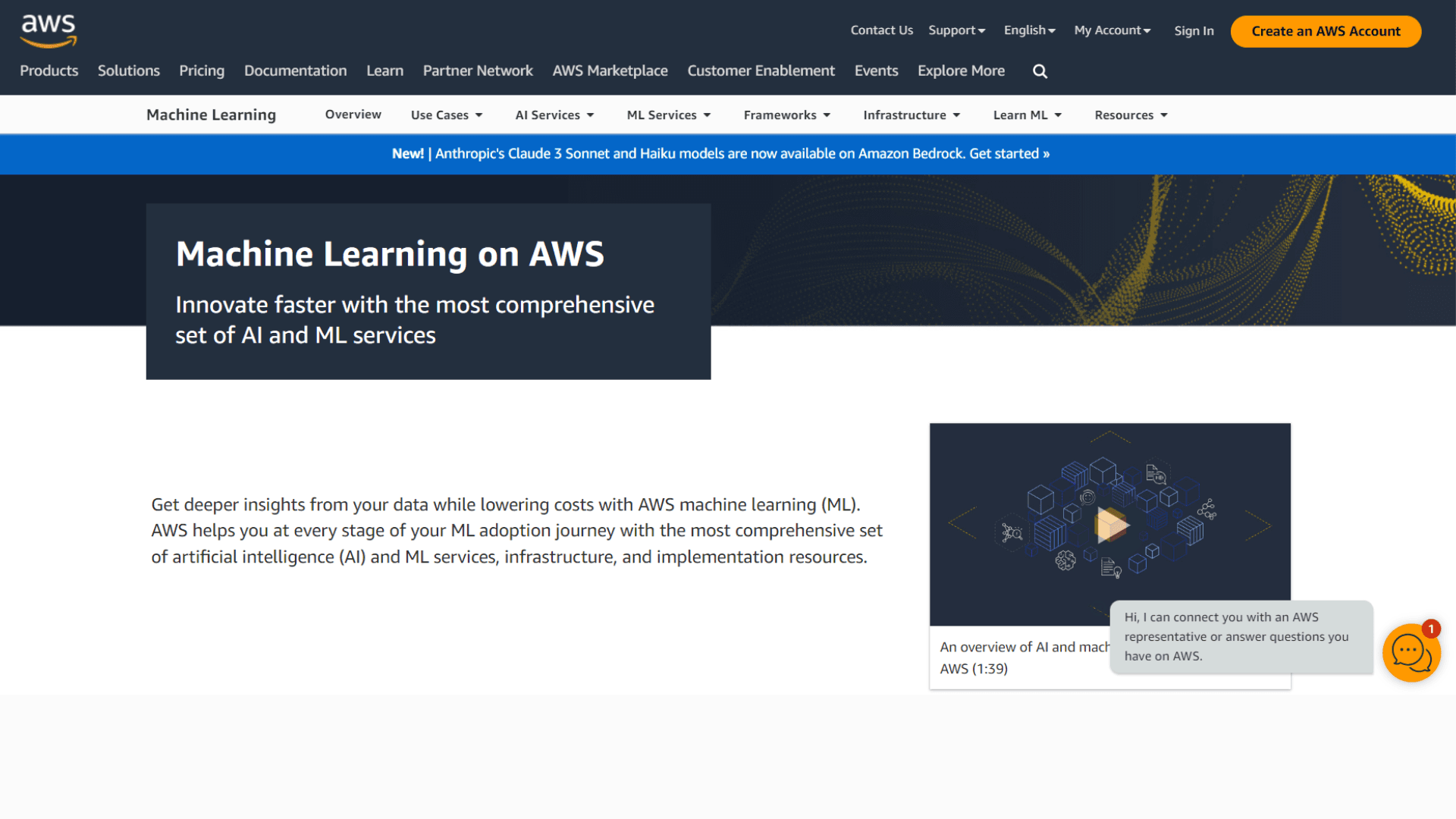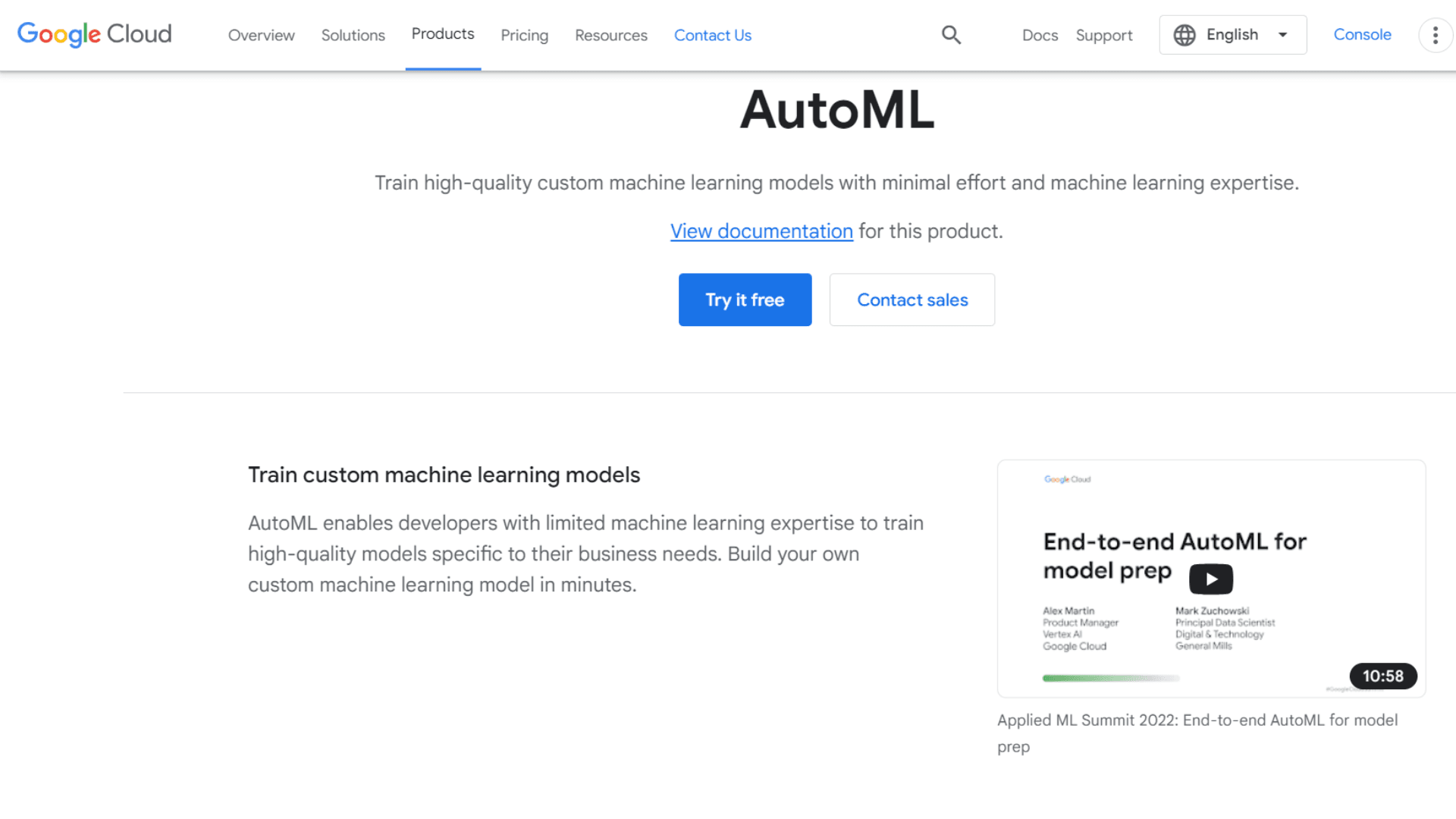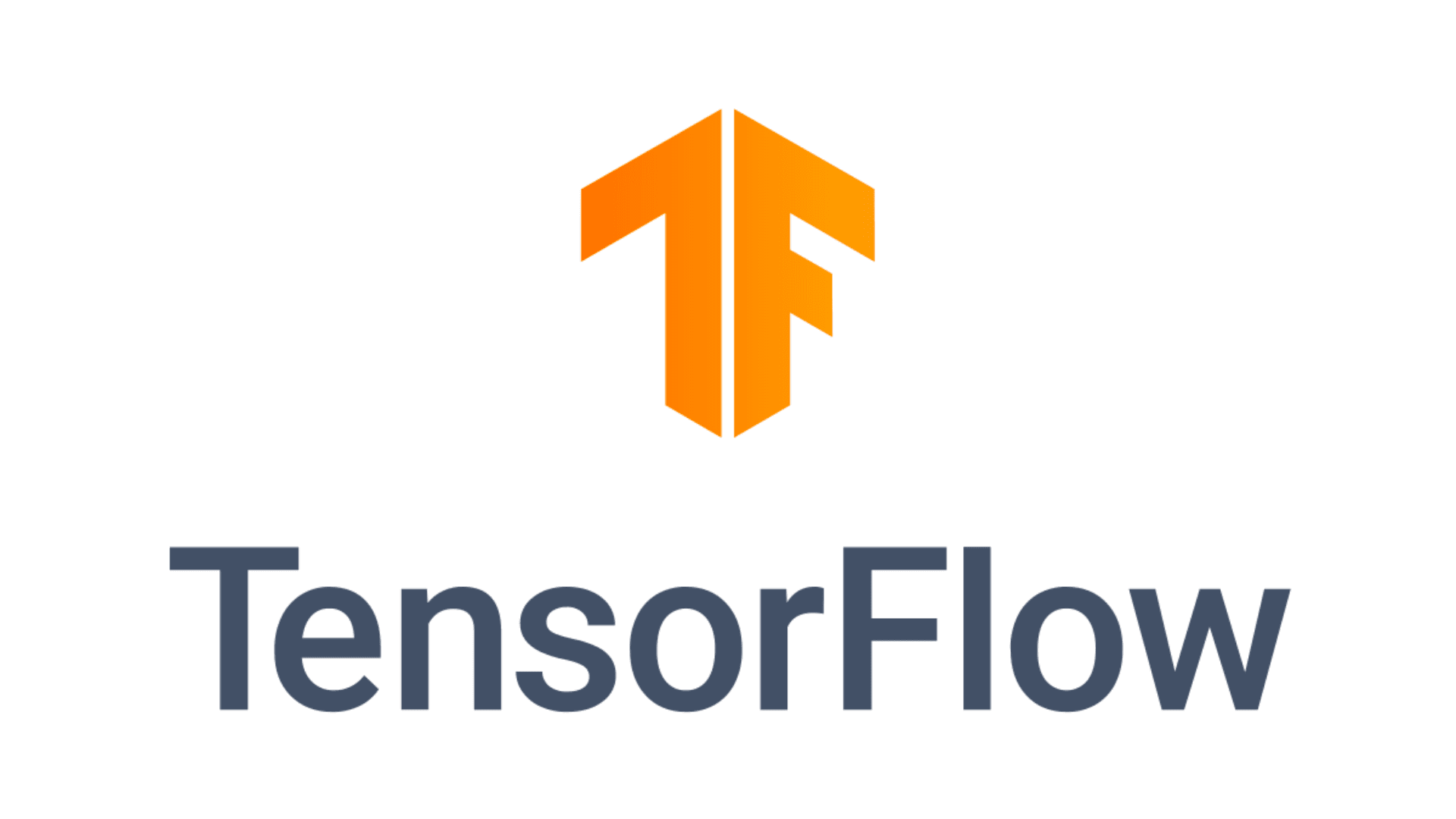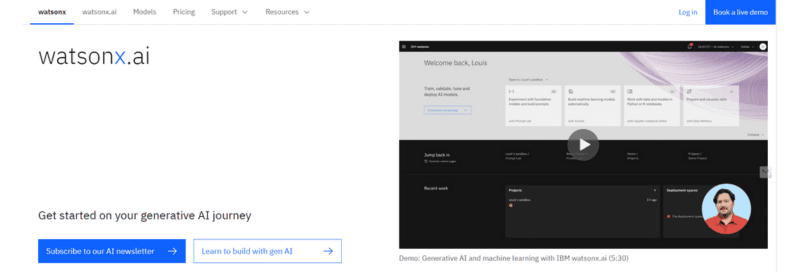Machine learning as a service (MLaaS) has emerged as a game-changing technology in the field of artificial intelligence, offering businesses and developers the ability to control the power of machine learning without the need for extensive expertise or infrastructure. As the demand for intelligent solutions continues to grow, MLaaS will play a pivotal role in shaping the future of industries worldwide.
In this article, we'll explore some of the best MLaaS platforms in 2025, highlighting their key features, pricing, benefits, pros, and cons. From established industry leaders to innovative startups, these platforms are paving the way for the democratization of machine learning and transforming the way organizations approach data-driven decision-making.
What is Machine Learning as a Service (MLaaS)?
MLaaS is a cloud-based offering that provides machine learning tools, infrastructure, and pre-built models to users on a subscription or pay-per-use basis. According to Industry Research, the worldwide market size for MLaaS reached USD 2044.1 million in 2023 and is projected to reach USD 8369 million by 2030, experiencing a CAGR of 21.8% from 2024 to 2030.
MLaaS platforms allow businesses and developers to access and utilize advanced machine learning algorithms and capabilities without needing to invest in extensive computational resources or hire specialized expertise in data science and machine learning.
Essentially, MLaaS abstracts the complexities of machine learning model development, training, and deployment, making it more accessible to a broader range of users. It typically includes features such as data preprocessing, model training, model evaluation, and inference deployment, often with user-friendly interfaces and APIs for ease of integration into existing applications.
Benefits of Machine Learning as a Service
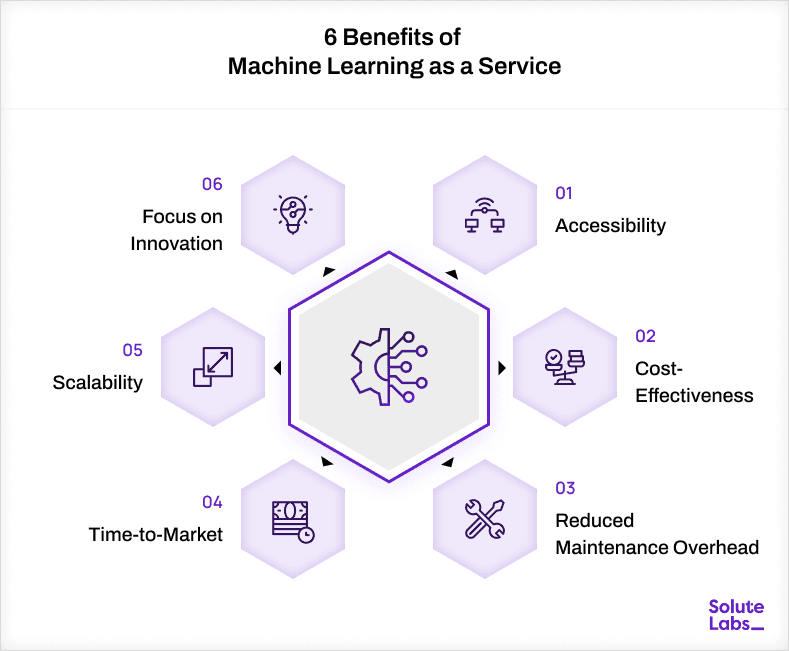
Machine Learning as a Service (MLaaS) offers several significant benefits to businesses and developers:
Accessibility:
MLaaS makes advanced machine learning capabilities accessible to a wider audience, including businesses without extensive data science expertise. This accessibility democratizes AI, allowing organizations of all sizes to use machine learning for various applications.
Cost-Effectiveness:
According to Markwide Research, MLaaS eliminates the need for significant upfront investments in infrastructure and expertise. Instead, users pay for services on a subscription or pay-per-use basis, reducing capital expenditures and enabling cost-effective experimentation and scalability.
Reduced Maintenance Overhead:
MLaaS providers handle maintenance tasks such as software updates, security patches, and infrastructure management, freeing up resources and allowing organizations to concentrate on core business activities.
Time-to-market:
By providing pre-built models, tools, and infrastructure, MLaaS accelerates the development and deployment of machine learning solutions. This rapid deployment capability enables businesses to bring AI-powered products and services to market faster, gaining a competitive edge.
Scalability:
MLaaS platforms offer scalable infrastructure that can accommodate fluctuating workloads and growing data volumes. Users can easily scale resources up or down based on demand, ensuring optimal performance and cost efficiency.
Focus on Innovation:
As per the Gartner survey, E.SUN Commercial Bank Ltd., a Taiwanese bank, has utilized MLaaS as an innovative initiative within their bank. This initiative acts as a gateway for offering open banking APIs to external entities. The bank aims to offer over 50 APIs on MLaaS to both internal and external systems by the conclusion of 2019.
With MLaaS handling the underlying infrastructure and complexities of machine learning, organizations can focus on innovation and solving business problems rather than managing technical intricacies. This allows teams to iterate quickly, experiment with different approaches, and drive continuous improvement.
Top Machine Learning as a Service Platforms in 2025
1. Microsoft Azure Machine Learning
Microsoft Azure Machine Learning is a leading MLaaS platform offering a comprehensive suite of tools for developing, deploying, and managing machine learning models. With seamless integration with the Azure ecosystem, users can access a wide range of services and resources to support their projects.
This consists of machine learning solutions that are as follows:
Azure Automated Machine Learning:
Azure Automated Machine Learning is a service that Microsoft Azure offers that enables users to speed up the process of creating, training, and deploying machine learning models. This service automates various tasks involved in the machine learning pipeline, such as algorithm selection, hyperparameter tuning, and feature engineering, making it easier for users with diverse skill levels to create high-performing models efficiently.
Azure MLOps:
Azure MLOps is Microsoft's approach to implementing DevOps practices in machine learning projects on the Azure cloud platform. It combines the principles of machine learning (ML) and operations (Ops) to streamline the entire machine learning lifecycle, from development and training to deployment and monitoring.
Its scalability and flexibility make it suitable for a variety of use cases, from small-scale projects to enterprise-level deployments. With robust support and documentation, Azure Machine Learning empowers organizations to harness the power of machine learning for data-driven insights and innovation.
Additionally, some users may find that Azure Machine Learning lacks certain advanced features or customization options compared to other MLaaS platforms, potentially limiting its suitability for highly specialized or complex tasks. Moreover, cost considerations may arise, as pricing for Azure Machine Learning can vary based on usage and additional services, potentially leading to unexpected expenses for users.
2. OpenAI
OpenAI is a trending MLaaS platform that is granting users access to potent machine learning models like GPT (Generative Pre-trained Transformer) via APIs such as GPT-3. These APIs enable developers and businesses to integrate advanced natural language processing capabilities into their applications without needing to develop and train their own models from scratch.
OpenAI conducts groundbreaking research in the field of artificial intelligence, contributing to advancements that benefit various industries and domains. It develops innovative AI technologies such as GPT (Generative Pre-trained Transformer) models, which have wide-ranging applications including natural language understanding, text generation, and more.
But still, some of OpenAI's most advanced models and technologies may be inaccessible or prohibitively expensive for smaller organizations or individuals due to the computational resources required for training and deployment. Also, OpenAI's decisions, such as model releases and strategic directions, may lack transparency or sufficient community input, leading to concerns about accountability and governance.
3. AWS Machine Learning
AWS Machine Learning offers a versatile suite of cloud services, providing companies with access to extensive computing power and storage resources. Among its offerings are sophisticated tools, including machine learning as a service (MLaaS). This consists of six primary machine learning solutions:
Amazon Polly:
It's a service that transforms written text into natural-sounding speech. Polly primarily offers support for languages such as English, Brazilian Portuguese, Danish, French, Japanese, Korean, Mandarin Chinese, and Spanish.
Amazon SageMaker:
SageMaker is another MLaaS solution that provides a fully integrated development environment for machine learning tasks. SageMaker Studio streamlines the end-to-end machine learning workflow that makes this platform unique from other sub-platforms of AWS.
Amazon Lex:
Amazon Lex serves as a conversational AI platform tailored for chatbots, integrating "conversational interfaces" with voice and text capabilities into various applications through advanced deep learning methods like automatic speech recognition (ASR). Lex finds applications in diverse domains such as call center chatbots, voice assistants, QnA bots, informational bots, and application bots.
Amazon Rekognition:
Amazon Rekognition assists in recognizing objects, individuals, environments, text, and actions depicted in images and videos, while also identifying inappropriate content. Additionally, it offers precise facial analysis and facial search functionalities, facilitating the detection, analysis, and comparison of faces for tasks such as user verification.
Amazon Comprehend:
Amazon Comprehend is another service that Amazon Web Services (AWS) offers and that has natural language processing (NLP) capabilities. It allows developers to analyze and extract insights from text data using machine learning algorithms.
Amazon Transcribe:
Amazon Transcribe simplifies the process for developers to integrate speech-to-text functionality into their applications, utilizing a sophisticated deep learning method known as Automatic Speech Recognition (ASR) to transcribe spoken words into written text.
4. Google Cloud Machine Learning
Google Cloud Machine Learning is a suite of services provided by Google Cloud Platform (GCP) that enables developers and data scientists to build, train, and deploy machine learning models at scale. It offers various tools and services to support the entire machine learning lifecycle, including data preparation, model training, evaluation, and deployment. A service provider in the field of machine learning can offer the following solutions:
Google Cloud AutoML:
Google Cloud AutoML provides users with a suite of tools for building custom machine learning models tailored to specific tasks, such as image recognition, natural language processing, and structured data analysis.
However, AutoML's limitation lies in its reduced control over model architecture, which may hinder users who require extensive customization for their specific needs. Additionally, for highly specialized tasks that demand intricate model configurations, AutoML may not always offer the necessary level of sophistication, potentially leading to suboptimal performance in such scenarios.
TensorFlow:
Google created the renowned open-source machine-learning platform TensorFlow. With its flexible architecture and extensive set of tools, TensorFlow empowers users to build, train, and deploy machine learning models with ease. Its scalable nature allows for efficient processing of large datasets and complex computational tasks, making it suitable for a wide range of applications across industries.
5. Hugging Face
Hugging Face is a leading MLaaS platform in 2025 that provides a wide range of tools and services for NLP and generative AI. The platform makes thousands of pre-trained models accessible via an easy-to-use API, enabling developers to tap into advanced AI features regardless of their level of expertise.
Key Features:
- Model Hub containing thousands of pre-trained models for various NLP tasks
- Inference spaces to deploy and share machine learning models
- Transformers library for best-in-class NLP
- Datasets library for accessing and sharing machine learning data
- AutoTrain for fine-tuning models with no code
- Enterprise solutions with specializations and security features
The platform stands out from the rest in terms of collaboration because there is an engaged community of contributors who work on and build upon models. Its open-source status has pushed the democratization of AI more rapidly, and organizations can quickly incorporate sophisticated NLP capabilities into their applications.
But consumers seeking highly specialized models for niche applications might need to modify existing models, and the platform's focus on NLP means that those who need deep computer vision or tabular data solutions might need to find complementary services.
6. IBM Watson Machine Learning
IBM Watson Machine Learning is a comprehensive platform that empowers organizations to develop, deploy, and manage machine learning models effectively. It offers a range of tools and services, including model deployment and monitoring, collaborative environments for data scientists, and seamless integration with IBM Cloud services.
IBM Watson Machine Learning provides a comprehensive set of tools, providing users with a wide range of functionalities to support their machine learning projects. Its smooth integration with the IBM Cloud ecosystem enhances the user experience by allowing for easy access to additional services and resources.
However, navigating IBM Watson Machine Learning's pricing structure can be challenging due to its complexity, potentially leading to confusion or unexpected costs for users. Additionally, utilizing the platform to its full potential may require familiarity with the broader IBM ecosystem, posing a learning curve for those new to IBM technologies.
7. Databricks
Databricks has established itself as a leading MLaaS platform in 2025 with a single analytics platform that combines data engineering, data science, and business analytics. Their Lakehouse architecture bridges the gap between data lakes and data warehouses, providing organizations with a single platform to execute all their data and AI workloads.
Key Features:
- Unified workspace for data engineering, machine learning, and analytics
- MLflow for managing the entire machine learning lifecycle
- Auto ML features for auto-modeling and deployment
- Feature Store for sharing and managing machine learning features
- Team development with collaborative notebooks
- Security and enterprise-class governance features
Databricks is best suited to process large datasets and machine learning workflows, which makes it a good fit for organizations dealing with enormous data. Its support for widely used open-source platforms like Apache Spark, Delta Lake, and MLflow is strong and flexible.
The holistic approach of the platform can be daunting to smaller organizations or teams with less complex machine learning requirements, and its pricing plan is geared toward large enterprise customers, which could be cost-prohibitive for startup companies or lone data scientists.
Final Thoughts
Integration with emerging technologies like edge computing and quantum computing may redefine the landscape of MLaaS. As businesses continue to use machine learning for decision-making and process optimization, these platforms will play a pivotal role in driving innovation and accelerating digital transformation across sectors.
If you are looking for a consulting and product development agency, SoluteLabs offers web development, mobile development, UI/UX design, cloud services, and consulting services. Get in touch with us today to fulfill your software development requirements.



